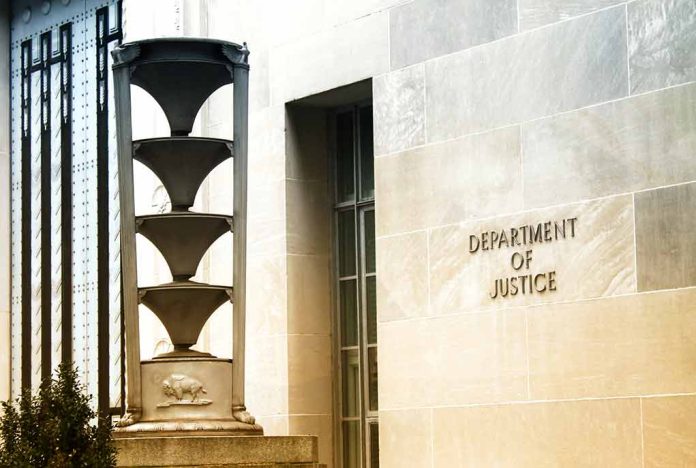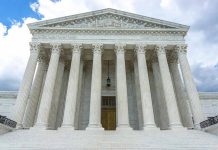
FBI recommends charges against Colorado Springs Mayor Yemi Mobolade in hate crime hoax investigation, but DOJ declines prosecution.
At a Glance
- FBI recommended charges against Mayor Mobolade for false statements in hate crime hoax probe
- DOJ declined to prosecute, citing racial and political considerations
- Three supporters charged with staging hate crime to boost Mobolade’s candidacy
- Evidence shows Mobolade communicated with lead suspect before and after incidents
- Mayor’s explanations evolved from denial to claims of memory lapses
FBI Recommends Charges, DOJ Declines
The FBI has recommended charges against Colorado Springs Mayor Yemi Mobolade for making false statements during a hate crime hoax investigation. However, the Department of Justice has declined to pursue these charges, citing racial and political considerations. This decision has raised questions about the equal application of justice and the potential influence of politics on law enforcement decisions.
The controversy stems from a staged hate crime incident allegedly orchestrated to boost Mobolade’s mayoral campaign. Three of Mobolade’s supporters have been charged with staging the hate crime, which involved writing racial slurs on campaign signs and erecting a burning cross.
Court documents outline a Facebook message, texts, and a call between Colorado Springs Mayor Yemi Mobolade and suspect Derrick Bernard, prior to an alleged hate crime hoax that was planned to influence the mayoral runoff election. https://t.co/Zgkyh6h0TW
— KRDO13 (@KRDO_13) November 22, 2024
Mayor’s Contradictory Statements
During the investigation, FBI officials uncovered evidence that Mayor Mobolade had made contradictory statements about his communications with the suspects. Initially, Mobolade denied any contact with the lead suspect, Derrick Bernard. However, evidence later revealed numerous messages between them before, during, and after the staged incidents.
“During that interview, most of his answers consisted of ‘I do not recall.’ This was contrary to his interview answers from the previous two interviews where he denied involvement very strongly” – an FBI official
This shift in Mobolade’s explanations, from outright denial to claims of memory lapses, raised suspicions among investigators. The FBI subsequently recommended charges against the mayor for making false statements during official interviews.
Mobolade would go on to win the election, becoming the city's first Black man to be mayor. https://t.co/7vXhMAz4ZB
— Josh Helmuth KRDO13 (@Jhelmuth) November 13, 2024
DOJ’s Controversial Decision
Despite the FBI’s recommendation, the Department of Justice made the controversial decision not to charge Mayor Mobolade. This decision has sparked debate about the potential influence of racial and political factors in law enforcement decisions.
“The initial response from the Department of Justice was ‘we can’t indict the first black mayor of Colorado Springs,'” – an FBI official
The DOJ’s decision has raised concerns about the equal application of justice and the potential for political considerations to influence legal proceedings. Critics argue that such decisions undermine public trust in the justice system and may set a dangerous precedent for future cases involving public officials.
Ongoing Investigation and Charges
While Mayor Mobolade has not been charged, three individuals face federal charges for their alleged roles in staging the hate crime. These charges focus on making threats and conveying false information, rather than election interference or hate crime charges. The ongoing investigation continues to reveal details about the alleged coordination between the mayor’s campaign and those involved in staging the incidents.
“My knowledge and interaction with Bernard was as a local media personality, and I was not aware at the time that he was suspected of this crime. I appreciate local and federal law enforcement’s work in pursuing justice and sending a message that we will not tolerate such reprehensible behavior.” – Yemi Mobolade
As the case unfolds, questions remain about the extent of Mayor Mobolade’s involvement and knowledge of the staged incidents. The controversy surrounding this case continues to highlight the complex intersection of politics, race, and justice in America’s legal system.














